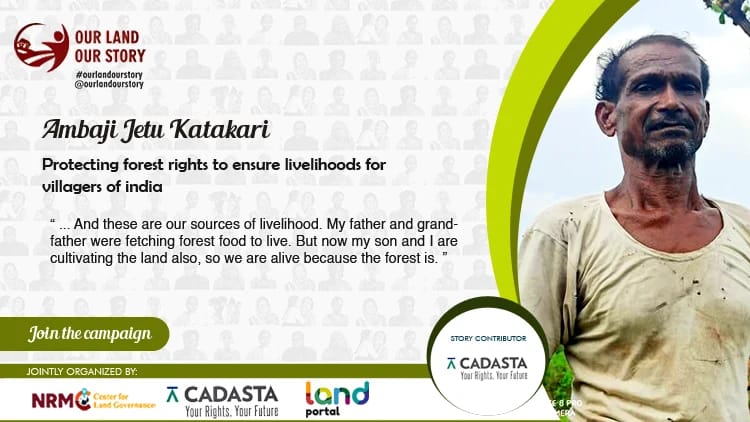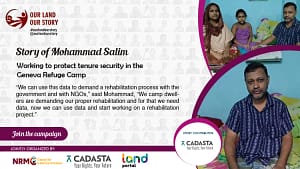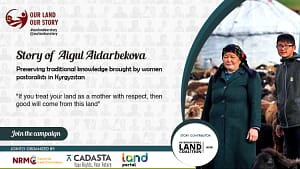
Ambaji Jetu Katakari is a 66 year old father of three from the Shirdhon Village in India. The forest near where Ambaji lives is fundamental to his livelihood: he cultivates food to both eat and sell.
Reflecting on his relationship to the forest, Ambaji shared, “This is the third generation in my family that is dependent on the forest. We have been cultivating land for many decades. My great-grandpa is buried in this forest. Forest is everything for us. Forest is giving us honey, wood, vegetables, medicinal leaves, fruits, and roots. And these are our sources of livelihood. My father and grandfather were fetching forest food to live. But now my son and I are cultivating the land also, so we are alive because the forest is.”
Ambaji explains, “We have been dependent on this forest for many generations. But our father had to face the forest department first, and the forest department told our father that this forest land belongs to the government and we encroached on this land. Before this, we were thinking that this whole forest was ours.”
Without any formal records or proof of rights to the forest, Ambaji and his community were in constant threat of displacement. Indian NGO Waatavaran was working in the area to map and collect community data for communities living in the forests of Raigad District in Maharashtra State. The tools used to collect geographic information and demographic data were provided by Cadasta Foundation. With this data, the community and individual forest claims can be submitted to local village councils as the first step of approval of their formal individual and community forest right titles under the Indian Forest Rights Act (FRA) of 2006. This act recognizes the forest rights and occupation of forest land in Forest-Dwelling Scheduled Tribes (FDST) and Other Traditional Forest-Dwellers (OTFD) who have been residing in such forests for generations.
Commenting on the process, Ambaji said, “Now we understand that we need a claim for this land to live here or secure our source of livelihood permanently. We filed claims for the forest under the FRA act 2006 in 2008. But in 2011 the Sub Divisional Level Committee (SDLC) rejected our claims due to a lack of evidence. Rejected claims gave us the threat of migration, so we were again living with a fear of being thrown out and being displaced.”
With better maps and detailed data of their land claims, Ambaji and his community are hopeful that their claims will be officially recognized. He explains, “With the help of data gathered under the project with Waatavaran and Cadasta, our community filed an appeal of claims. After appealing claims we attended two meetings with the SDLC, so this time we are very sure that we will get land entitlement.”
Story Contributor:




